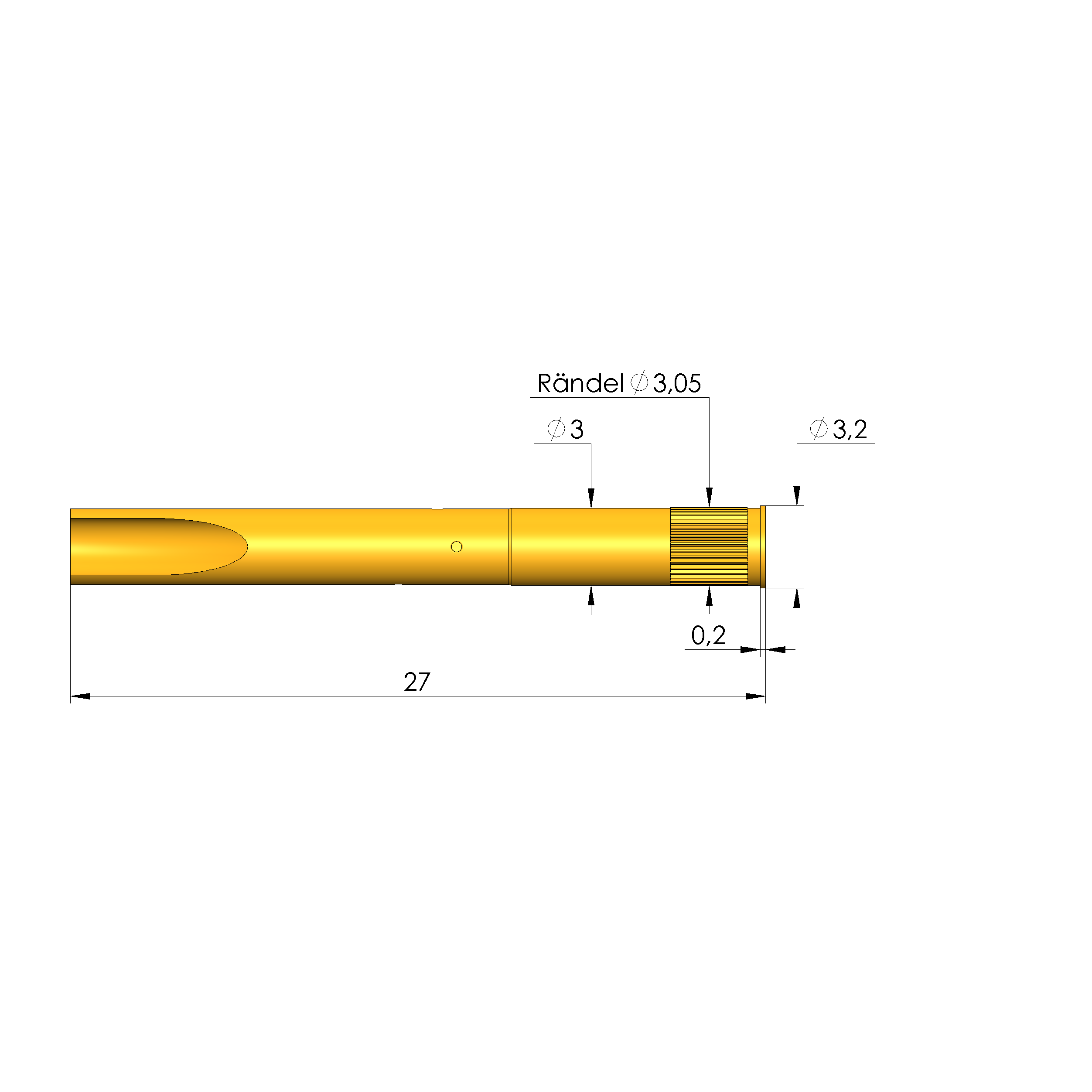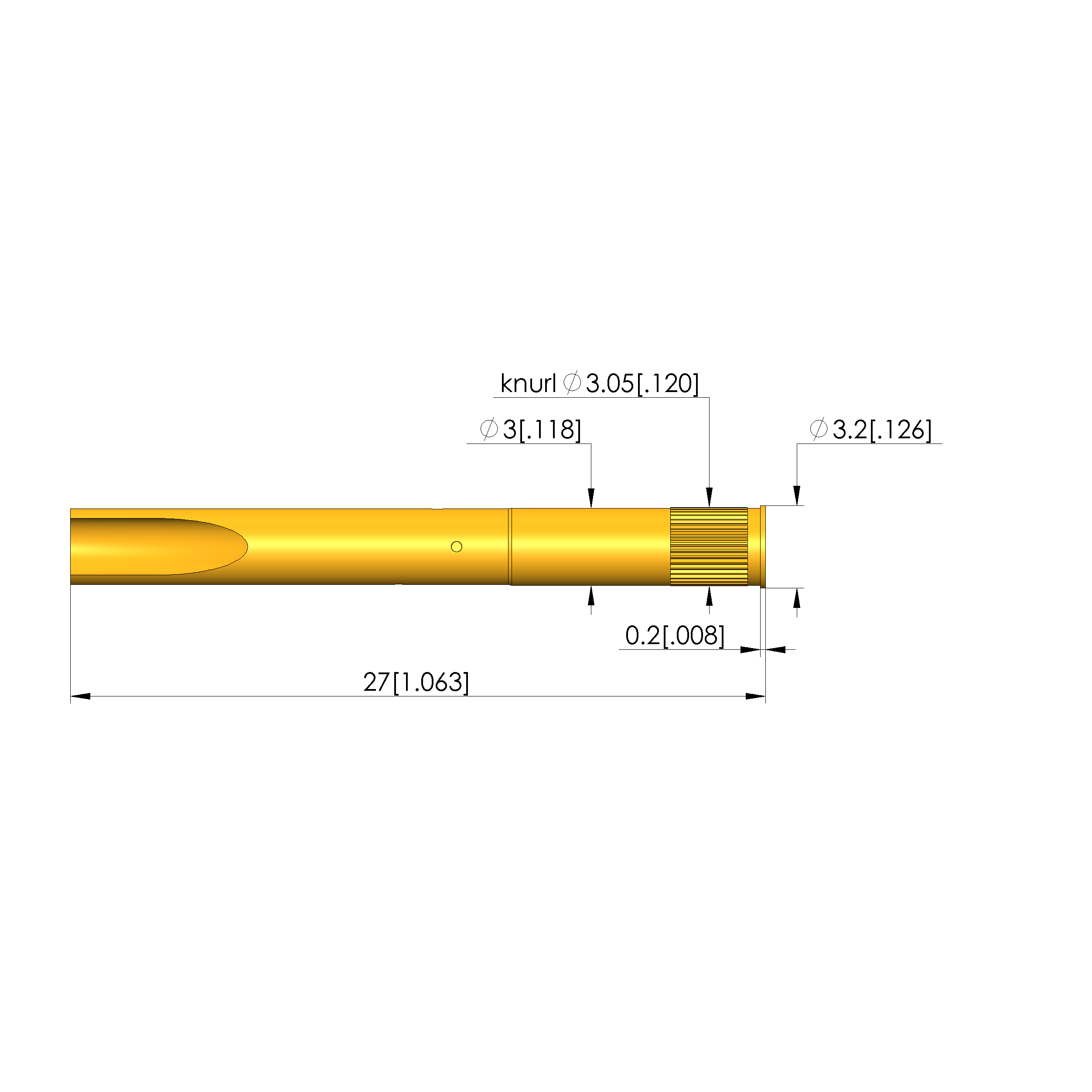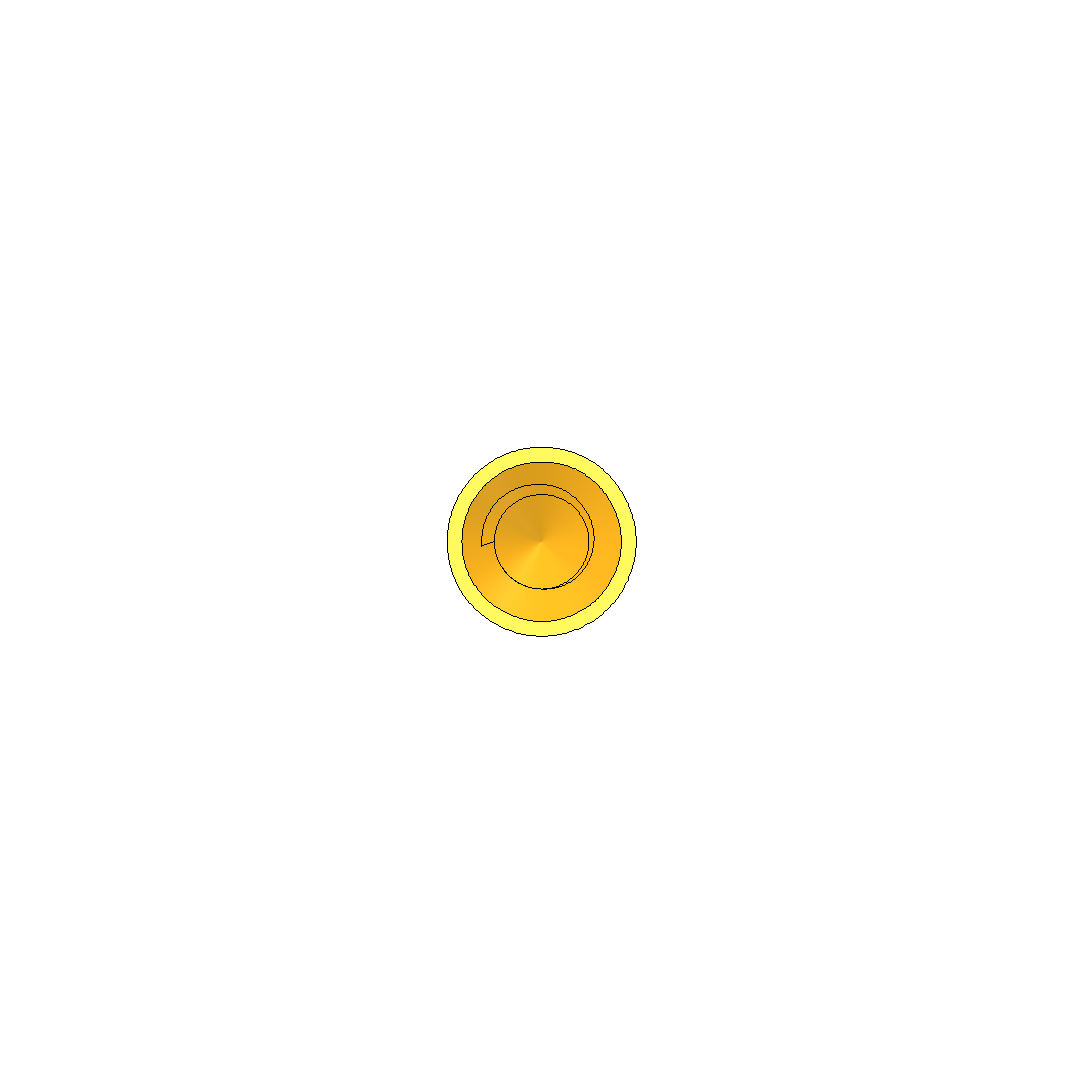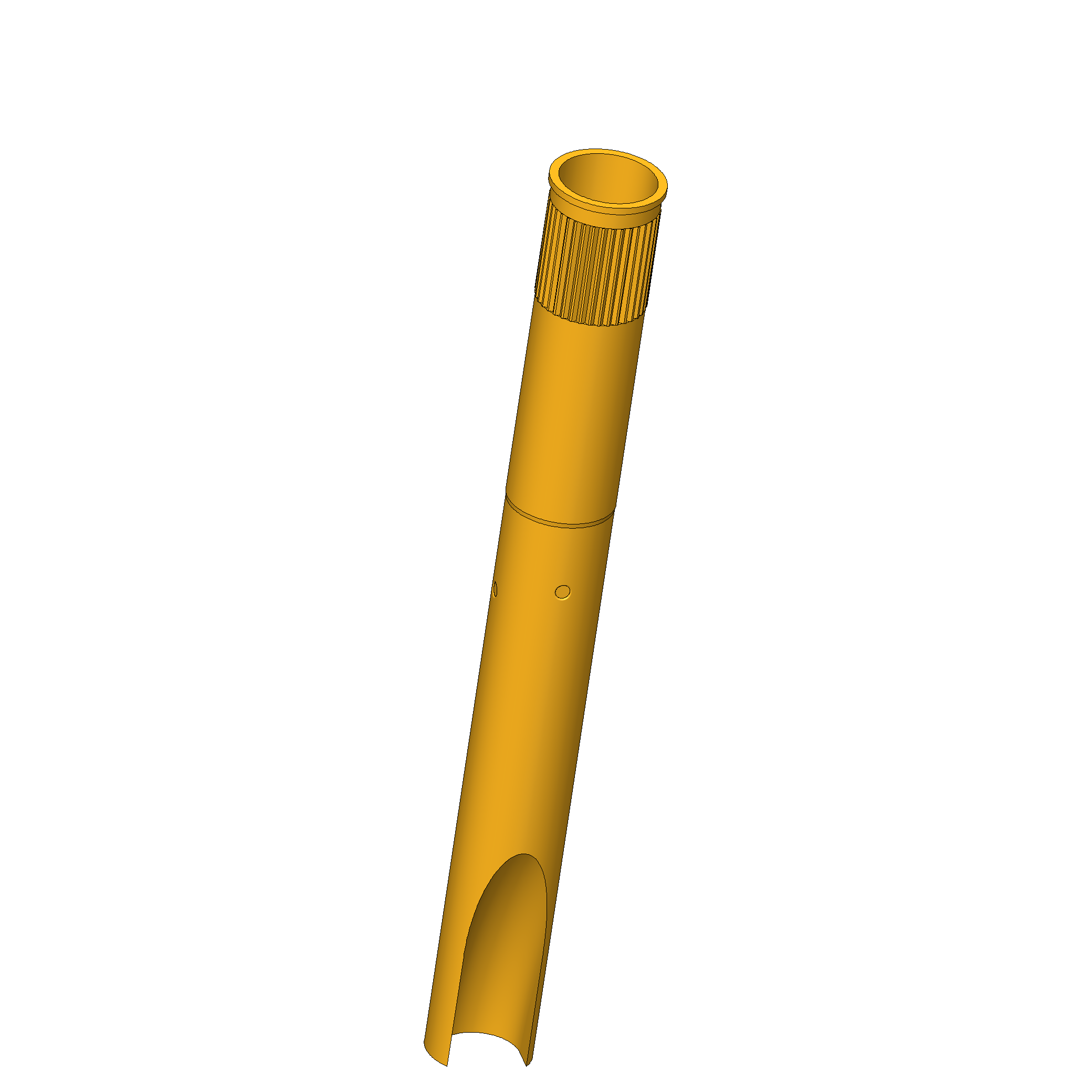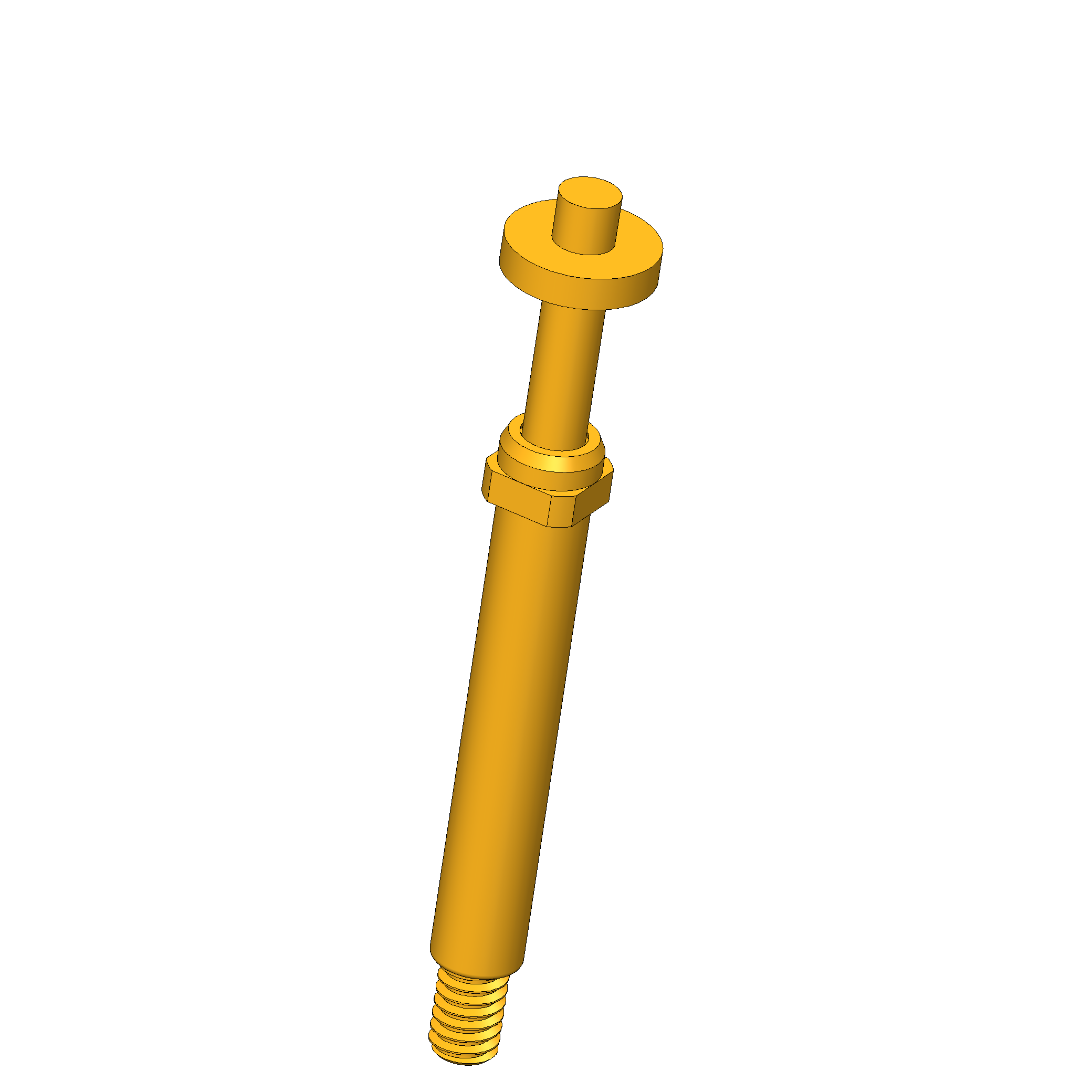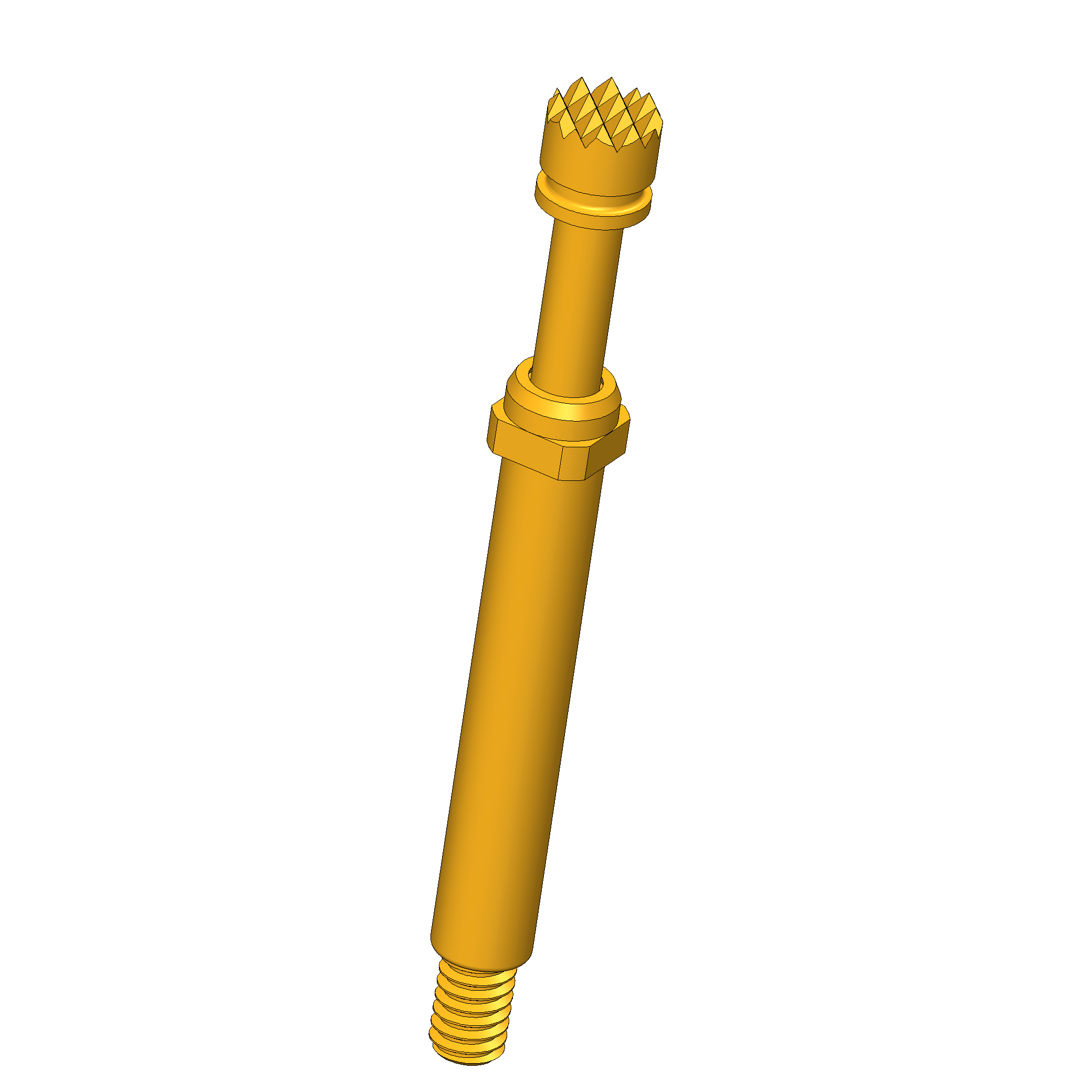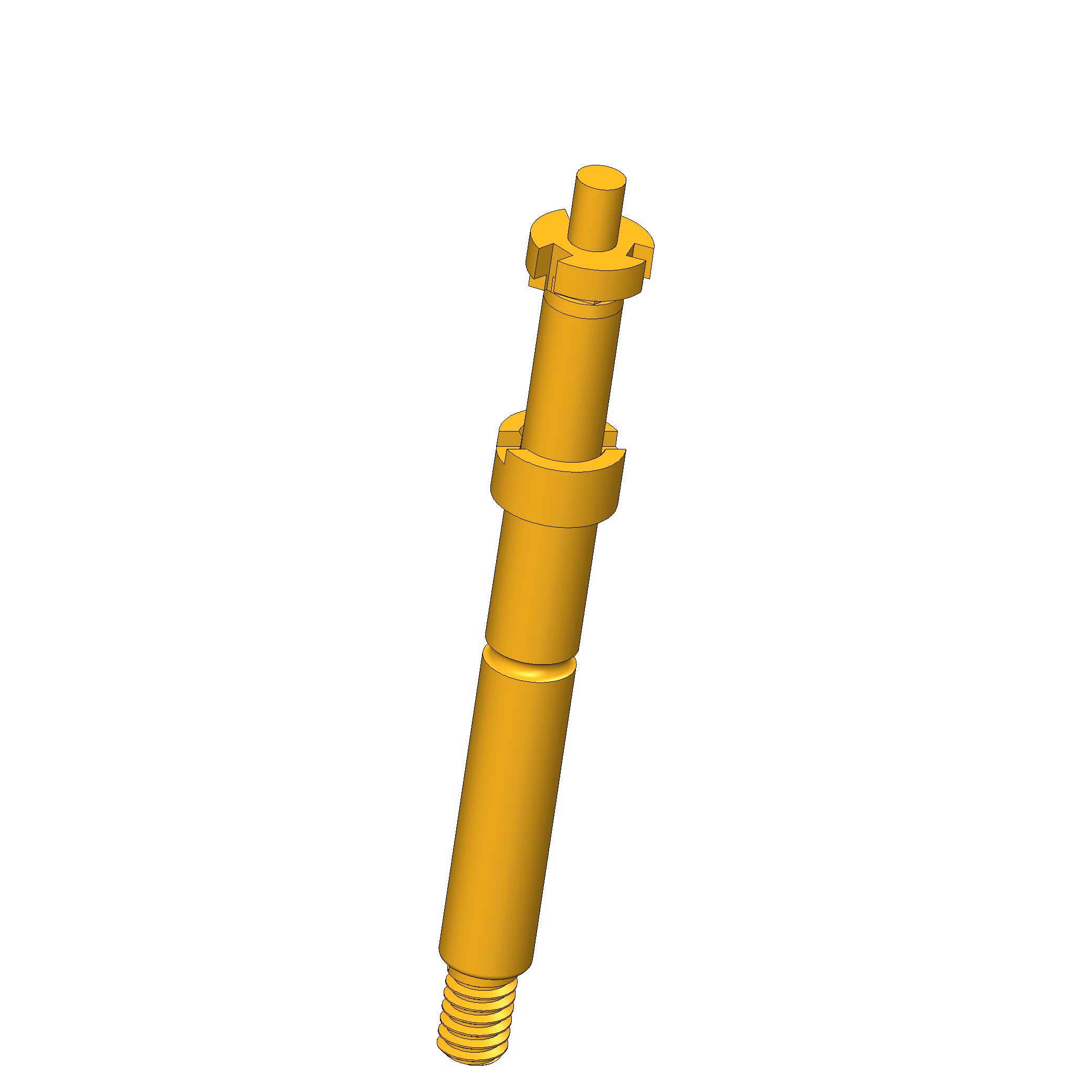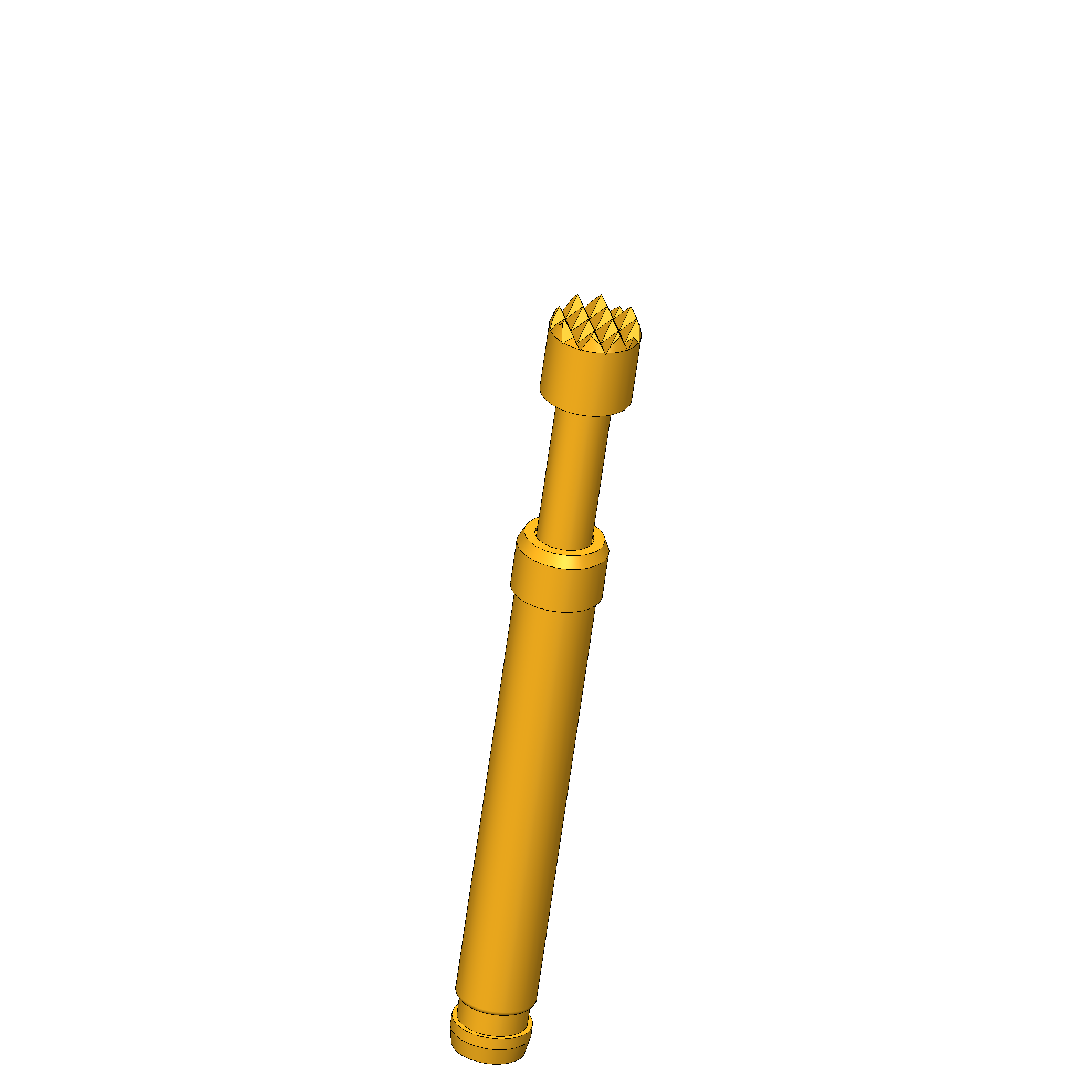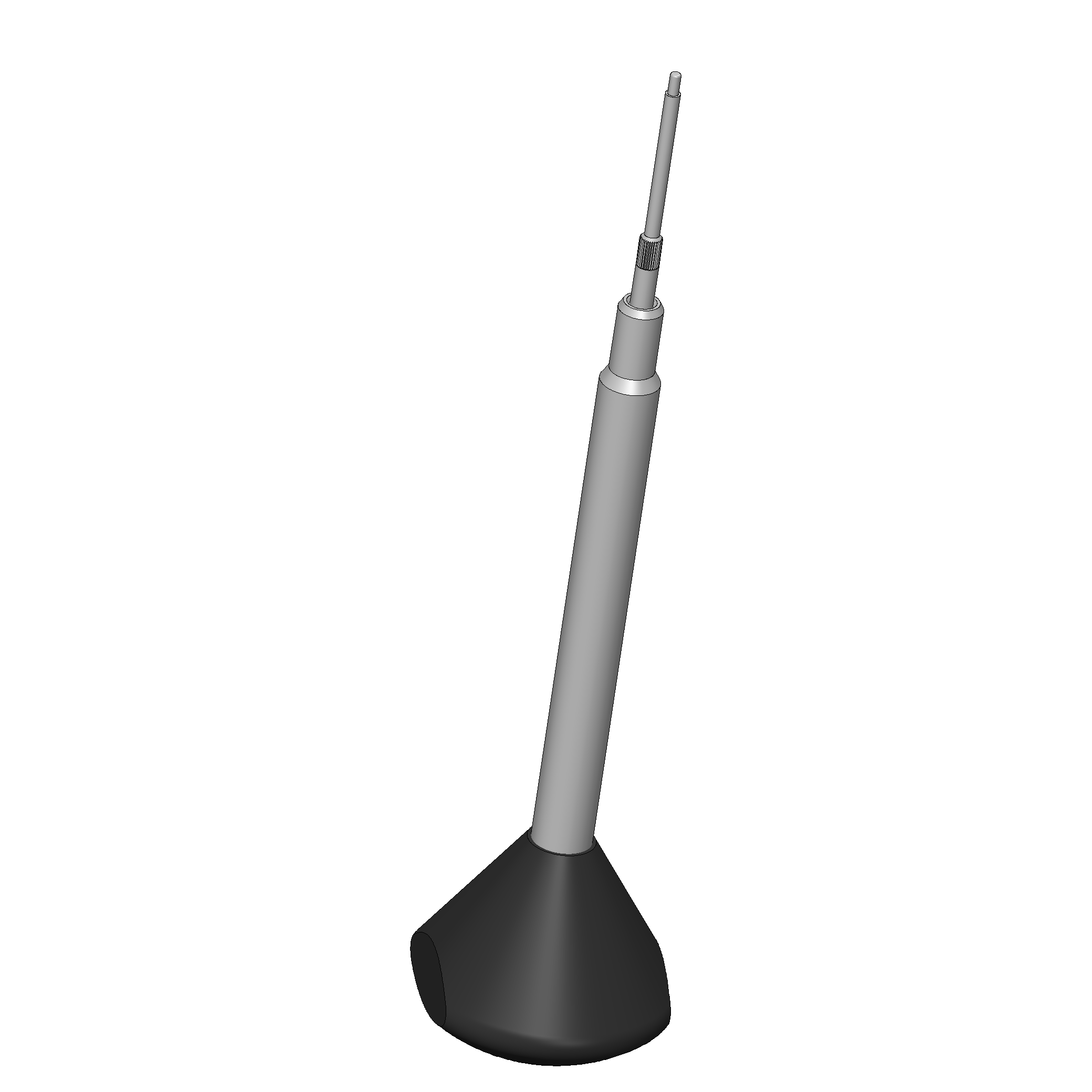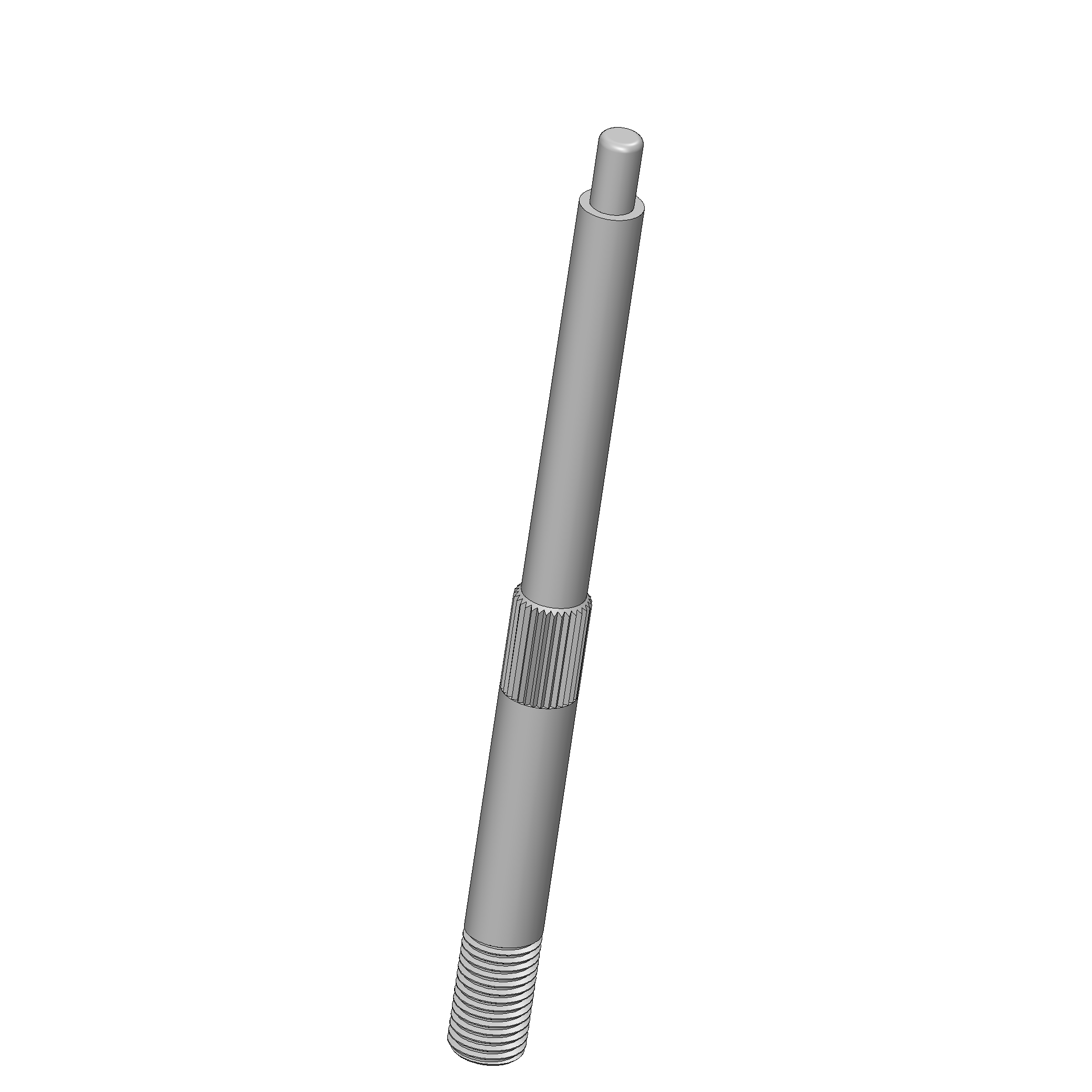Receptacle KS-113 30 M2-R-S Item KS-11330M2-R-S
Receptacle KS-113 30 M2-R-S Item KS-11330M2-R-S
Please log in to show the price
Login
The prices listed in the scale are displayed rounded, therefore deviation in the total price is possible.
Shipping costs
* The prices are rounded to two decimal places.
Technical data
| Product group : | Receptacles (KS) |
|---|---|
| Series : | KS-113 |
| Sub-series : | KS-113 M screw-in version |
| Type of receptacle connection : | Solder |
| Press ring : | No |
| Surface area : | Gold |
| Collar diameter : | 3.2 mm |
| Collar height : | 0.2 mm |
| Knurl : | Yes |
| Vacuum-tight : | No |
| RoHS-compliant : | RoHS-3;6c |
| Mounting hole in CEM1 : | 3.00 - 3.02 mm |
|---|---|
| Mounting hole in FR4 : | 3.00 - 3.02 mm |
| Total length : | 27 mm |
|---|---|
| Outer diameter : | 3 mm |
